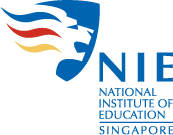Two teachers from Evergreen Secondary School share their memorable mentoring experiences, first as a mentee and later as a mentor.
All NIE pre-service teachers are mentored by their cooperating teachers and supervisors. When they grow and eventually become experienced teachers, they will mentor junior colleagues, helping these beginning teachers to learn the ropes of teaching and settle in the new school environment.
NIEWS got hold of two mentee-turned-mentor teachers, Tina Kishore Sajnani (Lead Teacher, Literature) and Tyrus Chua Chin-Lung (Senior Teacher, English Language), from Evergreen Secondary School, to give us an overview on the ins and outs of mentoring. | Read More |
Mentoring is a social partnership in which a more experienced member of staff guides a colleague towards meeting desired personal development outcomes. As mentoring does not aim to achieve specific standards or performance targets, it alleviates some of the stress junior teachers might face opening up to the more senior mentors.
Mentoring is especially useful in the smooth transition of beginning teachers from training to teaching by providing them assurance and moral support, and helping them navigate the many roles teachers have to play in schools. As such, mentors need to be sensitive to the experience and needs of the mentee so as to offer appropriate, timely and constructive guidance.
I used to have a mentor who was a great inspiration to me. She was able to simplify complex ideas into bite-sized chunks that her students could easily learn and absorb. More importantly, she was kind and always accessible to me. I felt I could ask her anything and never had to worry about appearing silly. She was very reassuring, and would encourage me to experiment with new ideas. I now realise that both my teacher and mentor personas are closely modelled after her.
Mentoring is a process of professional and personal sharing between a mentor and a mentee. As the pair of mentor-mentee is usually teaching in the same faculty, mentoring has the effect of expanding the community of teacher collaborators. As the mentees gain confidence and become better teachers through mentoring, the overall quality of teaching and innovation in the faculty will also improve.
My first mentor was not only a brilliant sounding board whom I could get constructive feedback on my teaching ideas, he would constantly encourage me to try out these ideas in the classroom, and direct me to other teachers specialising in different teaching methods. These pedagogical experts would inevitably become my unofficial mentors and role models as I tapped on their expertise and experience for my professional and personal development.
Now that I am a mentor myself, I find that sharing my thoughts with my mentees has not only helped them formulate their teaching philosophies, it has helped me crystallise mine. There is so much knowledge and insights that can be gained learning from my mentees. Truly, just as I am a mentor to them, they are mentors to me.
Resources
- Practising teachers who are interested to learn more about mentoring can consider the two-day “Coaching/Mentoring Course” conducted by NIE
- There are also plenty of books on mentoring at the NIE library. Here are some good examples:
- How to be a brilliant mentor: developing outstanding teachers (E-book)
- Mentoring preservice teachers through practice : a framework for coaching with CARE
- Mentoring student teachers and interns : strategies for engaging, relating, supporting, and challenging future educators
- If you are considering implementing a mentoring programme in your school, you can contact Inservice@nie.edu.sg for advice and guidance.
Read More: Mentoring: Unleashing the Full Potential of Tomorrow’s Teachers in NIEWS 105.
9 Good Mentoring Tips from Tina & Tyrus





